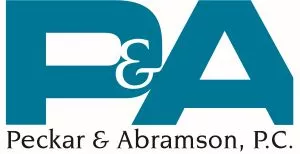In our recent Client Alert, "High Stakes in Doing Business with the Federal Government," we informed you of two recent cases which demonstrate the risk government contractors face if their business practices fall short of the high ethical standards set by the federal government and the courts. We noted that one of the key elements to successful government contracting is to make a "conscious commitment to take the necessary steps to assure compliance" with fraud, waste and abuse laws and regulations by establishing an effective "Compliance Program." Our recommendation has been strongly reinforced by a recent proposal by the federal government that would make contractor compliance programs not simply advisable, but REQUIRED.
If new proposed additions to the Federal Acquisition Regulation ("FAR") are implemented, contractors with significant government contracts will be required to develop a written code of ethics and business conduct and to display Office of the Inspector General fraud hotline posters. On February 16, 2007, the Civilian Agency Acquisition Council and the Defense Acquisition Regulations Council issued proposed regulations to the FAR that would add a new FAR Subpart 3.10, Contractor Code of Ethics and Business Conduct. The proposed regulations are the latest step in the federal government’s initiative to detect and prevent procurement fraud. Comments on the proposed rule are due by April 17, 2007.
Currently, only the Department of Defense, the Department of Veterans Affairs, and the Environmental Protection Agency have policies prescribing contractor codes of ethics and business conduct and the contractor’s duty to avoid improper business practices. If and when the new rule goes into effect, all contractors, regardless of the procuring agency, may be required to implement a compliance program.
Code of Ethics and Business Conduct, Compliance Training Program, and Internal Control Systems
The proposed regulations would require that contractors who receive a contract award in excess of $5 million with a performance period of 120 days or more must have a written code of ethics and business conduct. This written code of ethics and business conduct would have to be in place within 30 days after contract award.
Contractors would also be required to establish an employee ethics and compliance training program and internal control systems. The training program and the internal control system would have to be established within 90 days of contract award. Contractors would be required to prominently display the procuring agency’s Office of Inspector General fraud hotline poster in common work areas within the business segments performing the contract work. Contractor also would be required to display the hotline poster at the contract work site(s) and on the company’s employee-accessed website. Prime contractors would be required to flow down these requirements to subcontracts that meet the $5 million threshold.
Under the proposed regulations, the employee ethics and compliance training program and the internal control system would be proportionate to the size of the company and extent of its business with the federal government. However, the internal control system must:
- Facilitate the timely discovery and disclosure of improper conduct in connection with government contracts,
- Ensure corrective measures are promptly instituted and carried out,
- Provide for periodic reviews of company business practices, procedures, policies, and internal controls for compliance with the contractor’s code of ethics and business conduct and the special requirements of government contract,
- Establish internal reporting mechanisms, such as a hotline, by which employees may report suspected instances of improper conduct, and instructions that encourage employees to make such reports,
- Provide for internal and/or external audits, as appropriate,
- Provide for disciplinary action for improper conduct,
- Require timely reporting to appropriate government officials of any suspected violations of law or other irregularities in connection with government contracts, and
- Require the full cooperation with any government agencies responsible for either investigating potential violations or monitoring contractor corrective action.
These requirements already apply to contractors with the Department of Defense and are consistent with the compliance program prescribed in the Guidelines of the U.S. Sentencing Commission. The proposed regulations would extend these requirements to all civilian agencies.
While the requirements for a written code of ethics and business conduct, an employee ethics and compliance training program, and internal control systems apply only to contracts in excess of $5 million, the proposed regulations would establish a policy that all government contractors must conduct themselves with the highest degree of integrity and honesty. While not expressly requiring these initiatives, the policy expressly notes that contractors should have a written code of ethics and conduct, an employee ethics and compliance training program, and an internal control system. Certainly, all contractors would be well advised to do so.
Failure to Comply
If implemented, the proposed regulations would provide for financial penalties in the event that a contractor fails to comply with the requirements. A contractor who does not establish a written code of ethics, compliance training program, and internal controls system or to display the required hotline posters may be subject to:
- Withholding of contract payments, or
- Loss of an award fee for the performance period in which the government determined the contractor did not comply.
- "Other remedies available to the Government"
Bottom Line
Increasing numbers of contractors already understand that instituting and implementing an effective compliance program is not only an effective way to identify and avoid potential fraud, waste and abuse pitfalls, but that a compliance program also makes good business sense. The proposed regulations should accelerate that trend.
The content of this article is intended to provide a general guide to the subject matter. Specialist advice should be sought about your specific circumstances.


